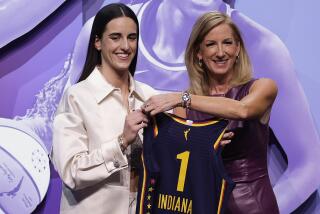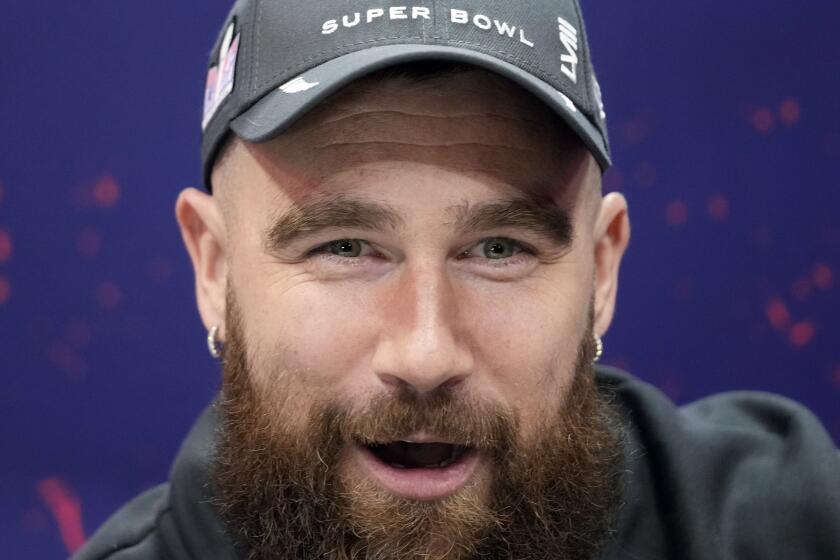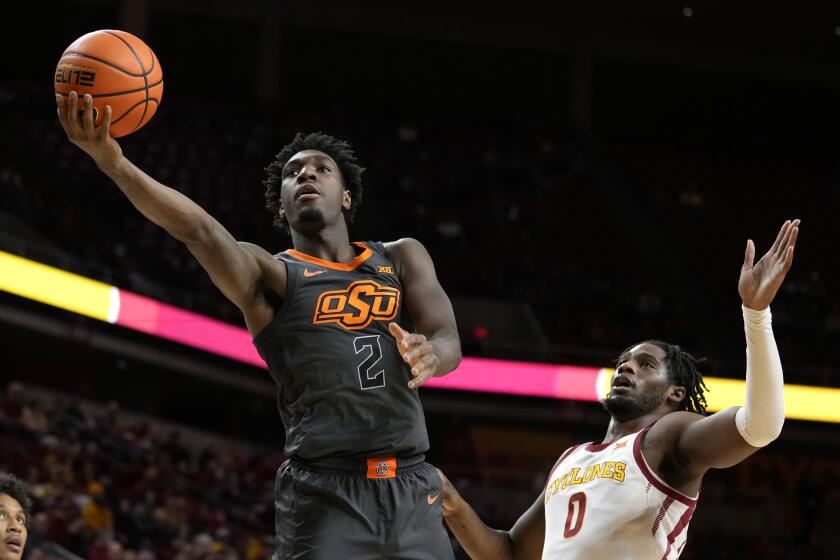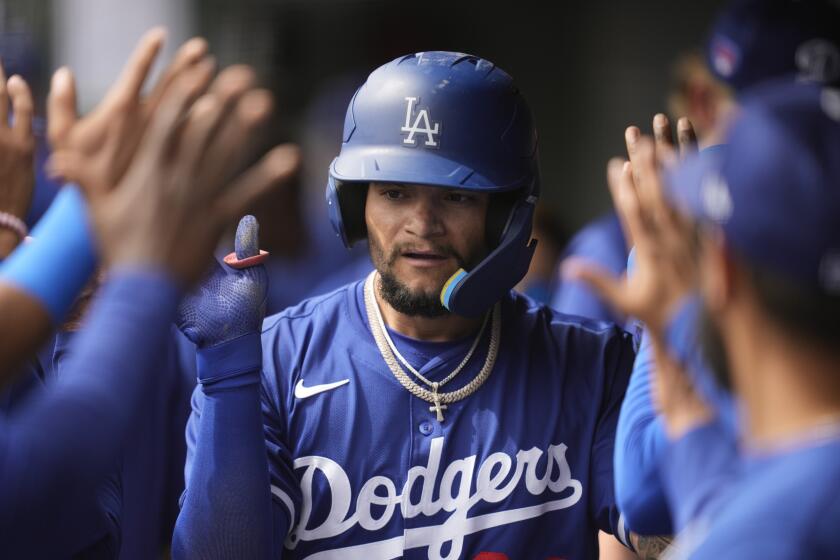Cyclist tests positive for doping
It is as if this Tour de France is being competed in clown cars instead of on bicycles.
Tumbling out of that crazy car Tuesday came swashbuckling fan favorite Alexandre Vinokourov, the blond from Kazakhstan who had won two of the last three stages while riding bandaged and bloodied from a first-week crash.
Vinokourov had a positive test for blood doping on his first, or “A” sample, after his inspiring victory in Saturday’s time trial. The story first appeared Tuesday on the website of the French sports newspaper L’Equipe and was confirmed by Tour officials at a news conference in Pau during the three-week Tour’s second rest day.
The test was conducted at the same French lab, Chatenay-Malabry, that had been under fire for leaking results of Floyd Landis’ positive test for testosterone after last year’s Tour.
After the news broke, Vinokourov’s team, Astana, withdrew from the Tour, leaving fifth-place Andreas Kloeden and eighth-place Andrey Kasheckin also out of the competition. French police raided the Astana team hotel in Pau.
Through his team spokesman, Vinokourov, 33, denied blood doping and suggested his test results might be a result of his physical wounds. But Astana officials said they believed the test results.
Patrik Sinkewitz already tumbled out of the clown car in this race. The German rider for the drug-scarred T-Mobile team had his positive doping test for testosterone revealed while he was in a hospital after a crash.
The German-based team had been disgraced by its association with star Jan Ullrich, who was caught up in “Operacion Puerto,” the 2006 Spanish drug scandal and by the admission of 1996 Tour champion Bjarn Riis that he had doped while riding for T-Mobile.
And hiding in the back seat of the clown car is current Tour leader Michael Rasmussen, like Riis a Dane, clad head to toe in yellow; the color accorded the top rider at the Tour. Rasmussen is not welcome on his Danish national team because he had so adroitly been absent from where he was supposed to be when out-of-competition drug testers came calling.
“A protocol error,” Rasmussen has said, dismissively.
British rider David Millar, who served a two-year doping suspension, was in tears Tuesday in Pau when news of Vinokourov’s failure broke. He told reporters, “It makes me really sad. Vino is one of my favorite riders, one of the most beautiful riders in the peloton. If a guy of his stature and class has done that, then we might as well all pack up our bags and go home.”
It is a thought others had Tuesday. Tour officials were asked if consideration had been given to shutting down the race.
According to the Associated Press, Patrice Clerc, president of the Amaury Sports Organization (ASO), which organizes the Tour and owns L’Equipe, said, “It never crossed my mind to stop the Tour.”
Last year’s Tour was tarnished first by “Operacion Puerto” and then by champion Landis’ positive drug test.
Through attorney Maurice Suh, Landis released a statement Tuesday urging restraint in condemning Vinokourov on the basis of the French lab’s testing.
“Just as in my case, [the lab] leaked the test results to L’Equipe, permanently damaging Vino’s reputation and causing him to defend an allegation without any evidence,” Landis said.
Jim Ochowicz, president of USA Cycling, said if there was good news from France on Tuesday it was this: “I think Vino’s test is proving the system in place is working to the extent that he was caught red-handed.”
Tour director Christian Prudhomme wasn’t as upbeat.
“This was an absolute failure of the system,” Prudhomme said. “It is a system that does not defend the biggest race in the world. This is a system which can’t last.”
As to why a prominent cyclist such as Vinokourov would choose to cheat in such a public way, Ochowicz said it was one word: “Stupidity.”
“The analogy for me is that there are laws against robbing convenience stores but it’s easy to rob convenience stores and you come up to a convenience store and there are two police squad cars sitting in the parking lot and you still rob the convenience store. Why? It’s always been easy before. Now, it’s not so easy,” Ochowicz said.
Bobbi Fisher, 58, of Burbank and vice president of the Los Angeles Wheelmen cycling club, said she was devastated when she heard the news.
“Vino is an incredible rider. It’s very sad,” Fisher said.
Fisher worries about the future of the sport in the U.S. The only U.S.-based team in this Tour, Discovery Channel, loses its sponsorship at the end of the season.
While the team is performing well with 24-year-old Spaniard Alberto Contador in second place and almost guaranteed the honor of being the best young rider and with a chance to win the yellow jersey, and Tour of California winner Levi Leipheimer from Montana in fourth place, it has yet to find new sponsorship for next season.
“It will hurt cycling in this country, no doubt,” Fisher said, “if there is no U.S. team. People I know are inspired by Discovery. Without an American team people will stop watching, it won’t be the same thing.”
Fisher said that if she had the money she has enough faith in the sport to support a team.
“I would be testing all my riders all the time,” she said.
That is what a new American team, Slipstream, is trying to do. Spearheaded by former rider Jonathan Vaughters, Slipstream is trumpeting its commitment to expensive, strenuous, monthly testing. One U.S. cycling insider said Slipstream is poised to replace Discovery as the main U.S. team next year and is trying to sign some prominent riders.
“To me what happened today is good news,” Vaughters said. “Now the guy who is 20 years old, really good, coming into the sport, doesn’t have to make the choice: ‘Shoot yourself or give up your dream.’ Now he can keep his dream.”
--
More to Read
Get our high school sports newsletter
Prep Rally is devoted to the SoCal high school sports experience, bringing you scores, stories and a behind-the-scenes look at what makes prep sports so popular.
You may occasionally receive promotional content from the Los Angeles Times.






